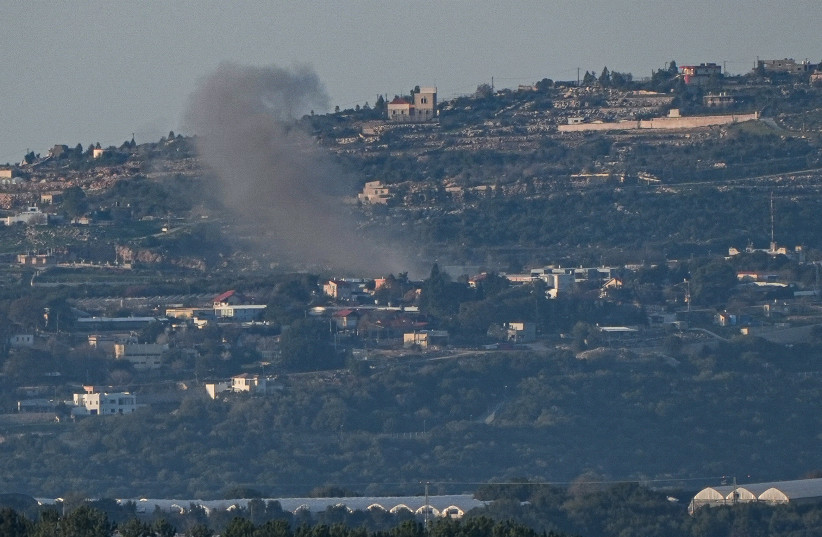It should be said from the outset that US Chairman of the Joint Chiefs of Staff General CQ Brown has been a friend of Israel over the last nine months.
Certainly, until May, the US provided an incredible amount of weaponry and military support, and there is no indication that Brown was a major factor for the recent switch in the Biden administration (which is not monolithic) to freezing one of the weapons shipments. It has since promised it would unfreeze.
This all makes his public statement on Monday shocking in that it appeared to pull the rug out from any viable military threat against Hezbollah.
Some had misquoted Brown as saying that the US would refuse to give Israel backing against Hezbollah should there be a larger war – but he did not go that far.
Rather, he essentially said that America’s capabilities would be insufficient to provide Israel with the same umbrella that it did against Iran’s attack in April.

This statement is not one about intentionality, but simply publicly admitting a lack of capabilities.
What is bizarre is not that it was said, but that it was made public and not provided as a warning in private.
The biggest boost of from Biden administration on October 8
One of the biggest boosts Israel got on October 8 from the US was President Joe Biden’s warning: “Don’t.”
As far as Hezbollah may now be concerned, Brown might have repealed Biden’s warning.
Perhaps more importantly, if Washington says that it wants a diplomatic solution, it may have just heavily undermined such a possibility.
What exactly is Hezbollah’s incentive to sign on to any diplomatic deal or concessions if there is no viable possibility that it will be attacked?
This is the Middle East after all, where power often speaks and achieves diplomatic gains, not politeness and subtlety.
Is the new threat by Israel and the US to Hezbollah going to be: well, Israel still might attack you, even though everyone knows America would not have its back and even though Washington thinks you will succeed in destroying large portions of the Israeli home front? And that is supposed to be a believable threat?
There are two possibilities of what happened.
The more optimistic outlook is what US defense sources have described to The Jerusalem Post, that Brown, who is normally very careful about public comments, went a bit rogue, and gave a technical statement that was not intended to indicate a policy shift. In that case, the key principle to remember would be that the US support for Israel’s defense is ironclad. But no one has said this on the record, let alone being ready to retract what he said.
The more pessimistic version of events is that America is done with war in the Middle East for now. It “lets” Israel “go crazy” and destroy Hamas military as well as large portions of Gazan territory in general, and it will do almost anything to prevent Jerusalem from doing anything else “crazy” against Beirut. Rogue or not, Brown said what many American officials are authentically feeling and thinking right now, and that is why there will be no retraction.
But then what is Israel to do about the 150,000 rockets hovering over it? How will the world and Israel stop Hezbollah’s special Radwan forces who are out of southern Lebanon for now, from returning? What will the world do to make sure Hezbollah complies with UN Security Council Resolution 1701, which allowed the terror group to violate for 18 years without raising a finger? And most importantly, what safety promises will the world make to Israel’s 60,000 northern residents who have been refugees for nine months so that they will feel they can go home?
These are Israel’s problems – and maybe the US and the world just want quiet.
If Hezbollah in a couple of years stages an invasion or a massive rocket surprise attack (anyone who says they would never be crazy enough to do this, check out Hamas on October 7, Iran on April 13-14, the Yom Kippur War, the Holocaust...), how ready will the US’s self-declared “inadequate” defenses be to save Israel then?
Is America committing to permanently keeping massive air defenses in place to protect Israel? Certainly, no US officials have even hinted at anything of the sort to date.
An Israeli war right now with Hezbollah – as opposed to a few years from now when Israel has better home front defenses and has divided its electrical network into more locations that are more defensible - may very well be the wrong move.
But publicly undermining the viability of a military threat that could get Hezbollah to agree to a diplomatic deal seems to do little right now other than ensure Israel will continue to remain highly threatened by Lebanon with no such deal.
